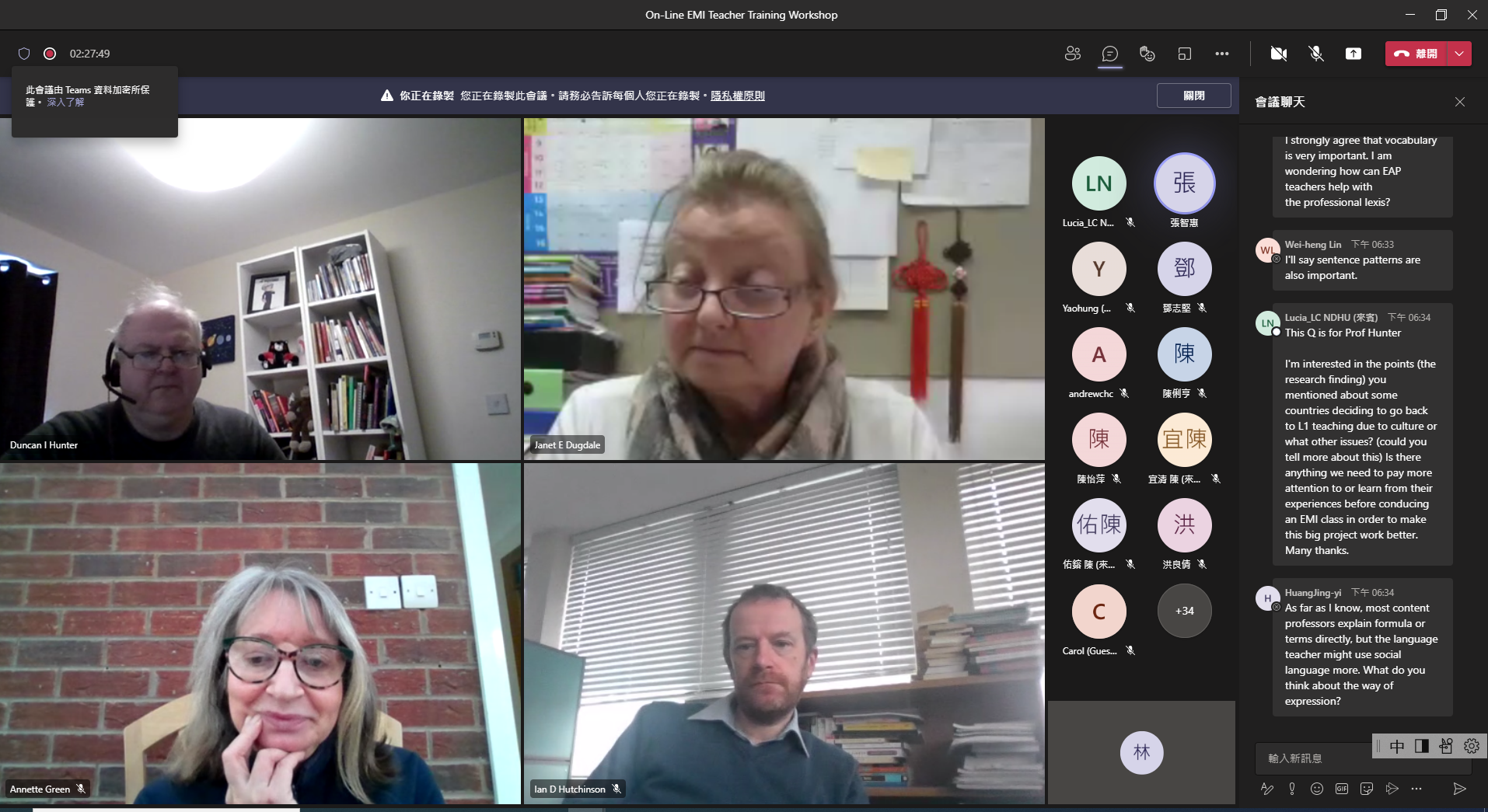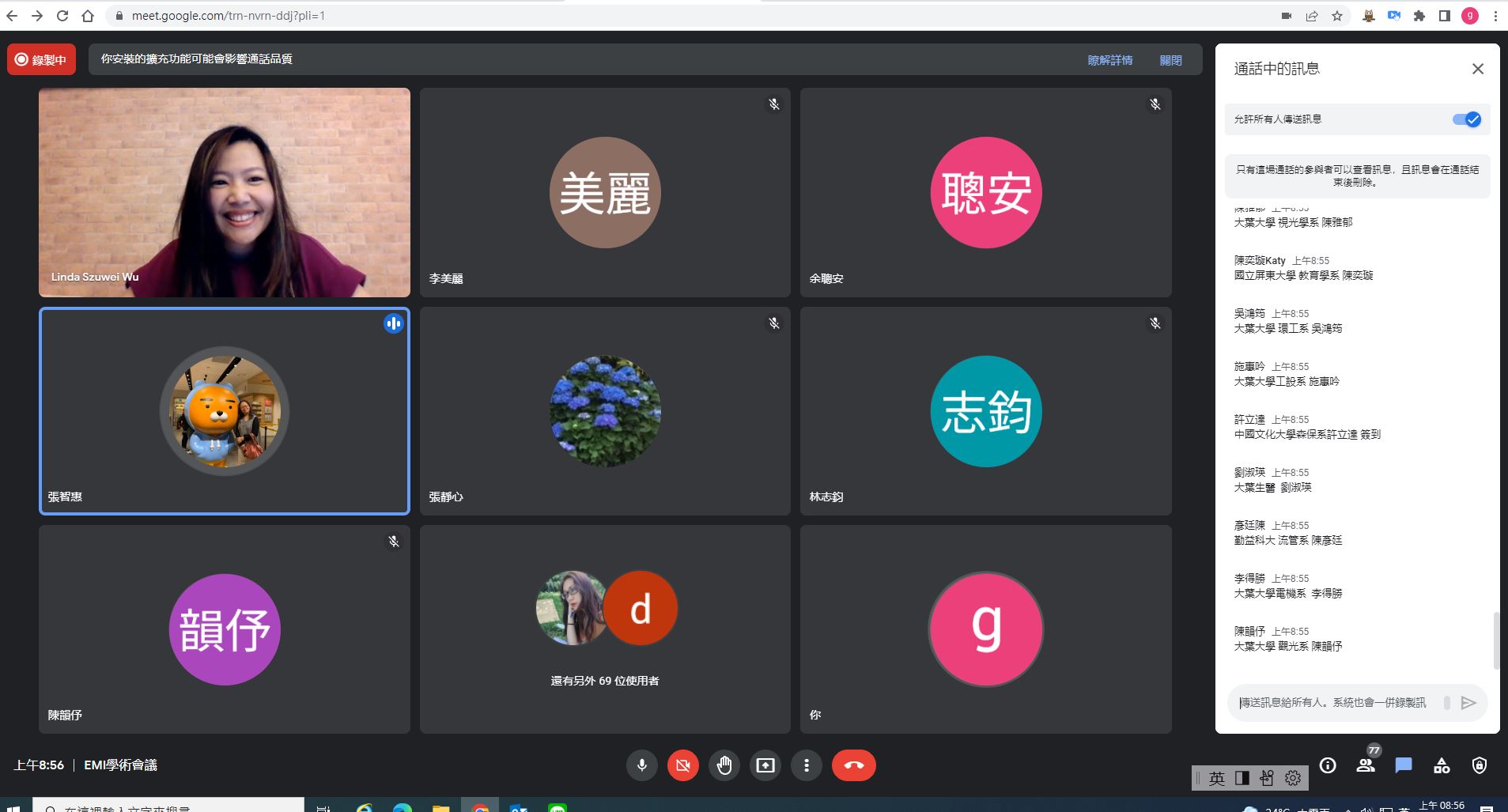Abstract
Features of Program
1. An Evaluation of the Combined Current Four Stages of the Da-yeh Education Internationalization Development Program (EIDP).
The Program on Bilingual Education for Students in College, Best, (hereinafter referred to as the "Plan" [Program]) was implemented by Da-yeh University, a Generalized Enhancement University, in the 2021–2022 academic year using a combination of the four stages of the Da-yeh Education Internationalization Development Program (EIDP). Its aims were, to promote (EIDP) and improve students' global competitiveness, to encourage students to pursue double-degree studying abroad, and to foster global professionals with enterprise integration skills. The major goal of the (EIDP) for Da-yeh is to comprehensively improve students' English proficiency. Da-yeh emphasizes the value of EMI through the central objective of improving graduates' English language proficiency and employability. Additionally, it has objectives which aim to boost the number of enrolled international students, foster student exchanges abroad, and constructively support the attainment of a bilingual home nation by 2030. In order to effectively advance and achieve the vision of Da-yeh's international education, the two programs, namely, EIDP and Best, have been combined in order to provide the most effective and efficacious means of improving the EMI teachers' teaching abilities, the students' four-language skills proficiency, the oral English communication abilities of the administrative staff, the creation of an English-friendly campus environment, and the recruitment of more international students.
2. A Gradual Implementation of EMI Courses
Given the geographical location of Da-yeh University, the catchment area for the bulk of its students is Changhua and the surrounding districts. The implementation of English courses has been done gradually. This approach stems from experience and a recognition that many of the students generally need more time and space for learning and development as their base level of English language is quite limited when they apply for undergraduate admission. This contrasts with students who come from more metropolitan centers. The four language skills, namely—listening, speaking, reading, and writing—are strongly promoted by the International Language Center (ILC). The EMI program began with general education courses in its first year. EMI teachers received training in accordance with the Program on Bilingual Education for College Students in College. Along with the general education courses, EMI courses for the master's degree were added in the second year. This gradual approach not only enabled students to become familiar with the non-linguistic knowledge taught courses in English and enhanced English proficiency, it also allowed teachers to receive adequate training and gain access to more supportive teaching resources from the Language Instructional Resource Center. This served to significantly increase the efficacy of EMI teaching and learning. This gradual development of the students' professional and general English proficiency through general English courses and EMI courses is more in line with the promotion and implementation strategies of the double degree program, exchange program, overseas internship, and international teachers’ mobility program under Da-yeh’s Education Internationalization Development Program (EIDP).
3. The Combination of EMI Courses and SDGs with Sustainable connotation.
As stated, the general education courses were the first ones taken during the first year of the EMI program. The confluence of connotation and the SDGs was explored as part of the course content. Da-yeh University has been committed to the vision of a "sustainable green university" since its inception. The University actively promotes a sustainable campus by integrating green technology, energy conservation, carbon reduction, and new environmental protection technologies. It is also dedicated to reducing its use of water, electricity, and waste while also promoting the use of green plants on campus and environmental education. Da-yeh received the "Silver Award of Energy Saving Benchmark" in 2021 from Taiwan's Ministry of Economic Affairs. Then in the 2021 World Green University Competition, the campus earned the 61st-best overall ranking and fourth place among Taiwanese universities (84 countries, 956 universities participated). Among all the Taiwanese private universities, Da-yeh received first place two years running. Da-yeh University also, exceptionally received the highest score of 1000 points in the world, for the World Green University Competition's water resource category. The general education EMI courses combined with the SDGs topics thus give students access to a green campus and helps them appreciate the value of sustainability and the environment.
Highlights of Da-yeh University Accomplishments
1. Cross-country Cooperation amongst Nations to Enhance the University’s EMI Teaching Abilities
In order to discuss online EMI research topics and EMI teaching methodologies, this welcomed EMI scholars from the University of Hull, UK, a sister school of Da-yeh University. The scholars were given a 3-session workshop over three days that lasted a total of 6 hours. All Taiwanese university teachers interested in EMI issues were welcome to attend this three-day workshop. Additionally, it promoted collaboration between the University of Hull, UK and the National Donghua University, Taiwan. The 3-day workshop featured 136 participants in all. Additionally, Da-yeh collaborated with the Center for English Communication at the National University of Singapore (NUS) in order to provide further comprehensive and well-organized training for EMI teachers. The team provided two intensive training sessions for EMI teachers that lasted a total of six days, and a total of 18 teachers from Da-yeh participated in and successfully completed the program.
2. Interdisciplinarity EMI Courses sharing and Encouraging Information Exchange about EMI between Universities.
The Language Instructional Resource Center hosted several cross-school curricular EMI courses. These provided the opportunity for sharing and considering current, and developing, situations and trends in EMI. They have also steadily improved Da-yeh teachers' comprehension of the teaching implications of EMI and developed their interest in EMI generally. It has also encouraged the sharing of EMI-related knowledge between universities. Specifically for different professional courses, EMI teachers from other universities were able to share their EMI teaching strategies, relevant experience, and lesson plans. They highlighted what they found to have most effectively improved their students learning. This allowed Da-yeh teachers who hadn't previously taught EMI courses in the classroom to experience what was involved and enable them to tailor and present their lessons to best effect.

